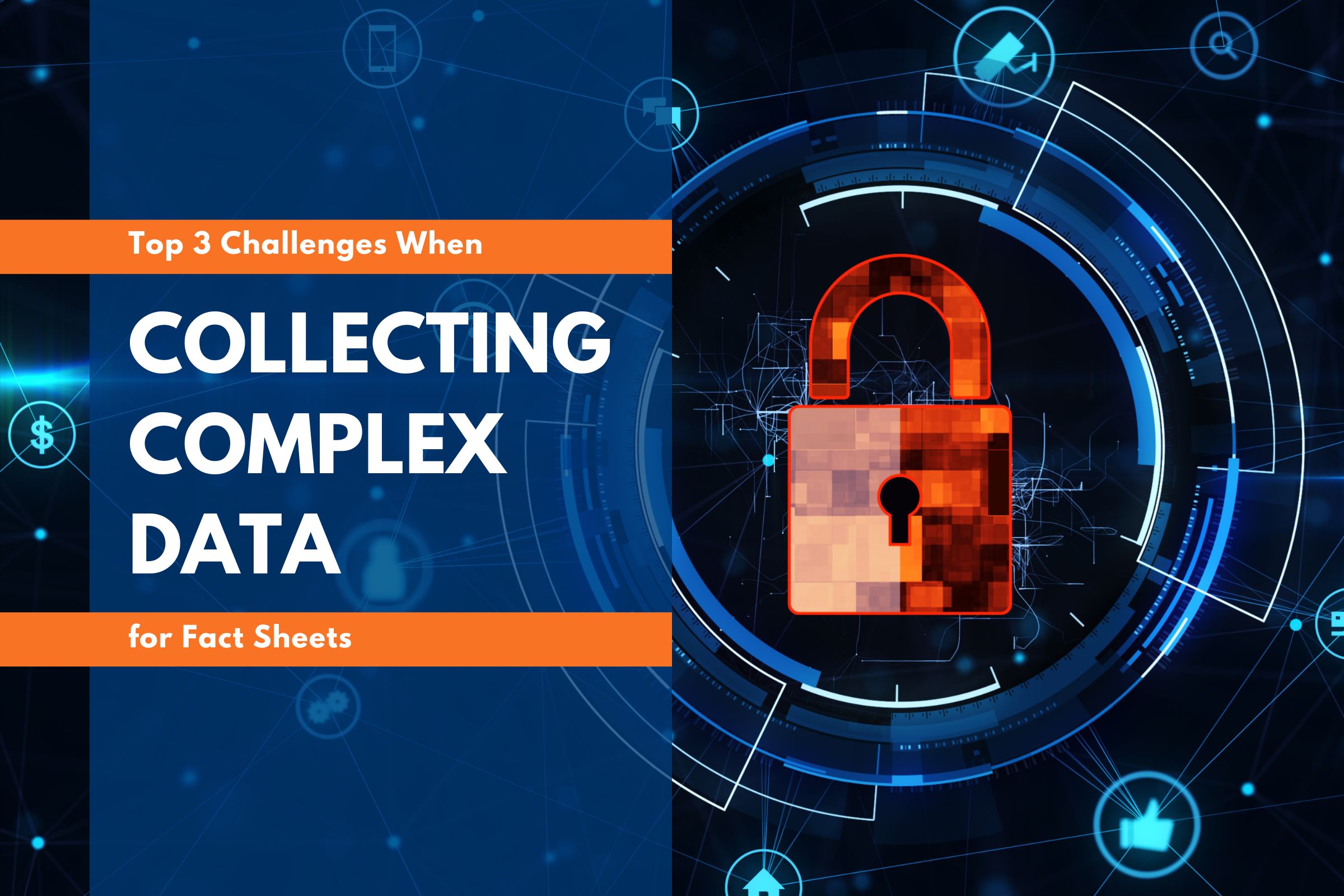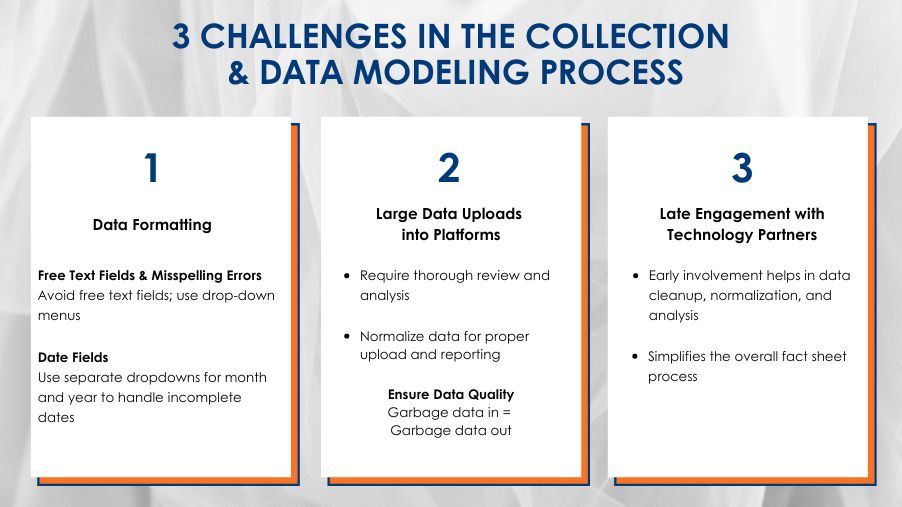
Mass tort litigation presents unique challenges, particularly in the discovery phase when collecting data for plaintiff fact sheets. Mass torts involve multiple plaintiffs alleging injury from one or many defendants. The volume of data can be overwhelming. From medical records to fact sheets, gathering information requires meticulous attention to detail and coordination among multiple parties.
Legal professionals face many complexities and obstacles throughout the collection process. In this blog, we will explore these challenges related to fact sheets and how to approach them strategically to save time and cost.
3 Challenges in Data Collection and How to Avoid Costly Mistakes
There are two ways to look at the topic of data collection and reporting:
Tip of the Iceberg
Refers to the end-results and deliverables that display the data that was captured in a meaningful way. This is where you start to use the data to look at trends.
Bottom of the Iceberg
Refers to the data modeling process that collects the data in a way that will produce analytics, reports, and trends. Beyond normalizing the data, you need to find a way to make the data consistent to turn the data into actionable insights.
Here are three challenges you may experience throughout the collection and data modeling process when building fact sheets.

1. Data Formatting
Free Text Fields and Misspelling Errors
Consider avoiding free text fields, when possible, to avoid inconsistent formatting, misspelling errors, and nonresponsive answers. Free text fields are not usable in automated reporting and require manual review.
Example: State of residence formatted as a free text field.
Consider formatting this field as a drop-down menu.
To have accurate analysis and reporting, fact sheets must be formatted in a way to circumvent nonresponsive answers such as, “ask my attorney,” “see my medical records,” or the input of artificial information to simply work around the system.
Answers like this can be handled through deficiency review or could be dismissed depending on the court ruling or the severity of the deficiency. Additionally, the plaintiff could be asked to supplement or clarify.
Date Fields
Date fields can present many difficulties when it comes to formatting. The overarching challenge is finding a way to handle incomplete dates.
• Excel does not allow you to have an approximate date (Ex: January 2020)
• “0” is not allowed for a date in Excel
Solution: Provide a dropdown for the month and a dropdown for the year.
2. Large Data Uploads into Platforms
When you have large sets of data that need to be uploaded to a platform from a plaintiff law firm intake form and/or Excel documents, this requires thorough review and analysis, and backend setup time on the platform. All data needs to be normalized and the data modeling needs to be assessed to match the platform’s setup for proper upload and reporting expectations.
Garbage data in = Garage data out
3. Engaging Technology Partners After Fact Sheets are Completed
In our experience, technology partners are typically engaged after the fact sheet questions are already finalized between the parties. Technology partners are then required to work within the parameters that have already been set. Extra time and cost are spent on reviewing data to be cleaned up, normalized, and analyzed to provide meaningful reporting.
Engaging with a technology partner early in the fact sheet development process can save time and money and make the overall fact sheet process easier for all parties.
Preparing for Data Collection in Mass Tort MDLs
LMI has 40 years of extensive experience in injury-related multidistrict litigations, managing complex data and all medical aspects of discovery. Our team of legal professionals and data analysts can work with all parties to develop questionnaires and fact sheets to meet the specific requirements of the case which can yield powerful analytics early in the process.